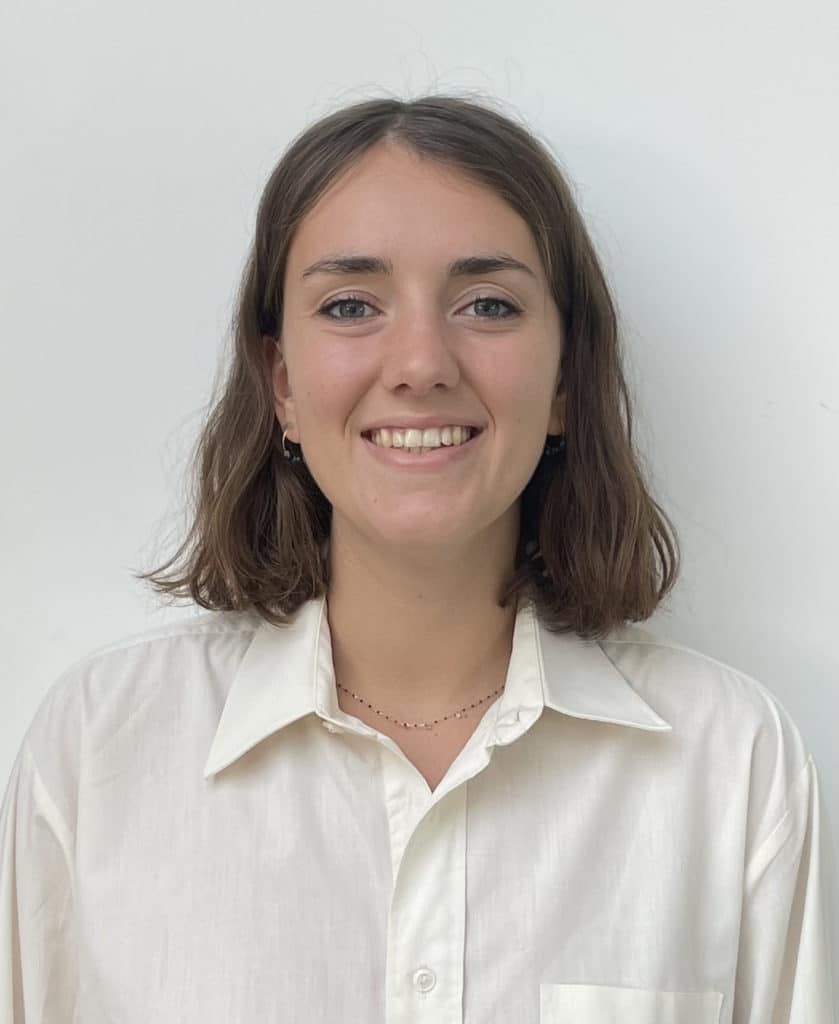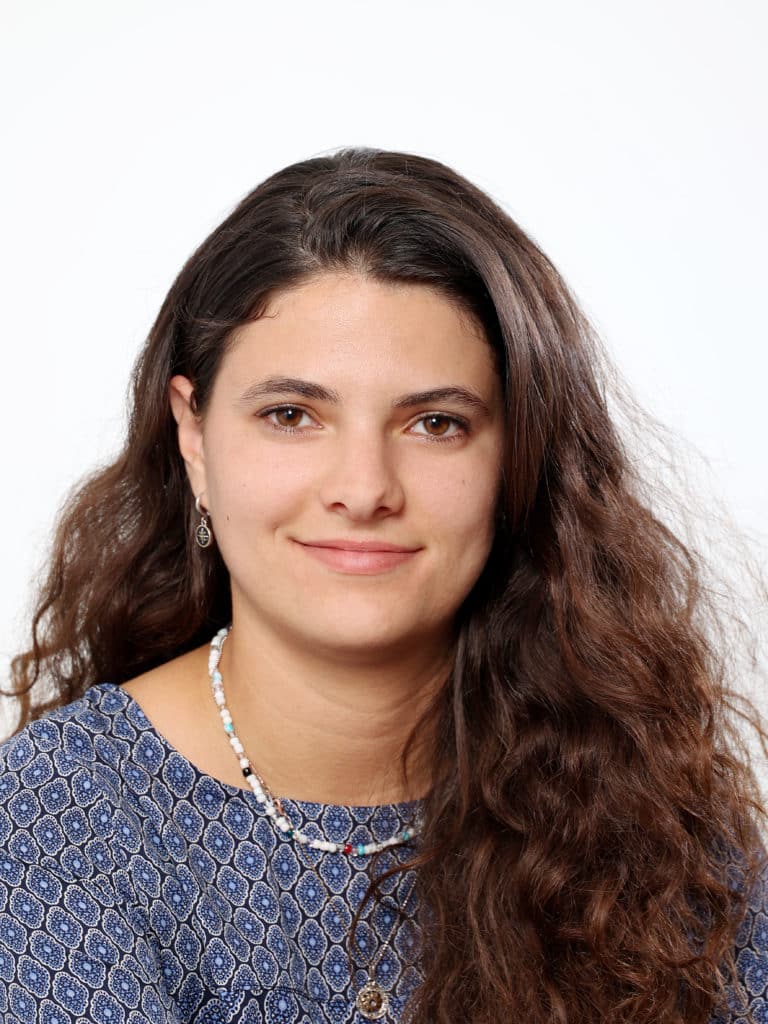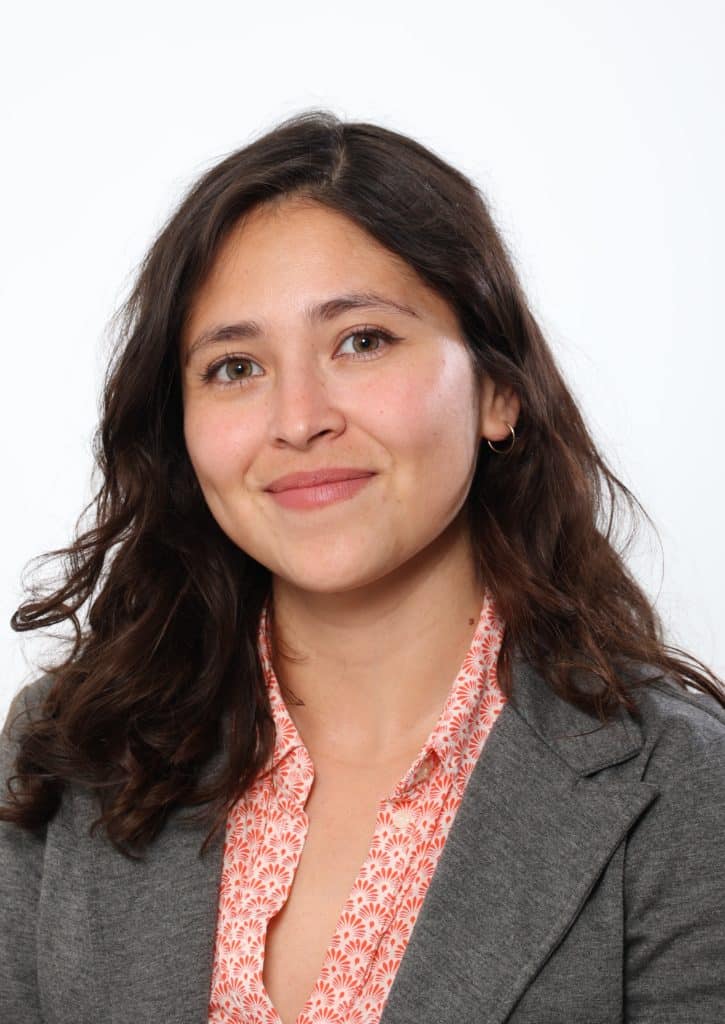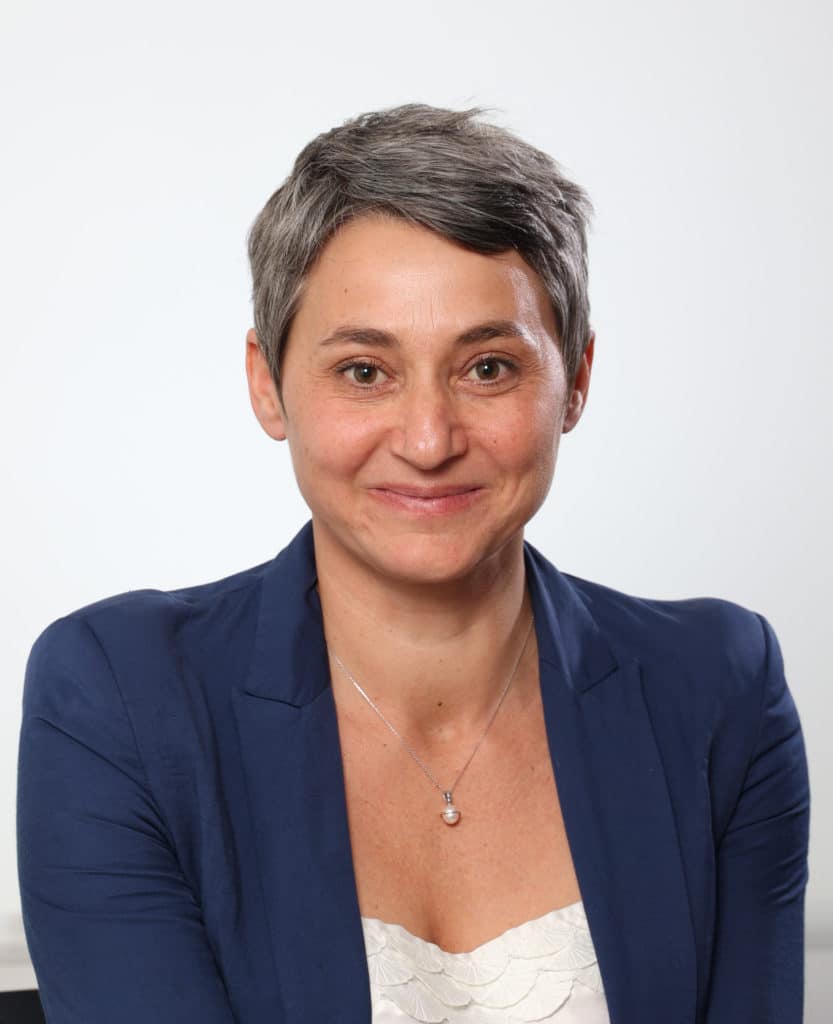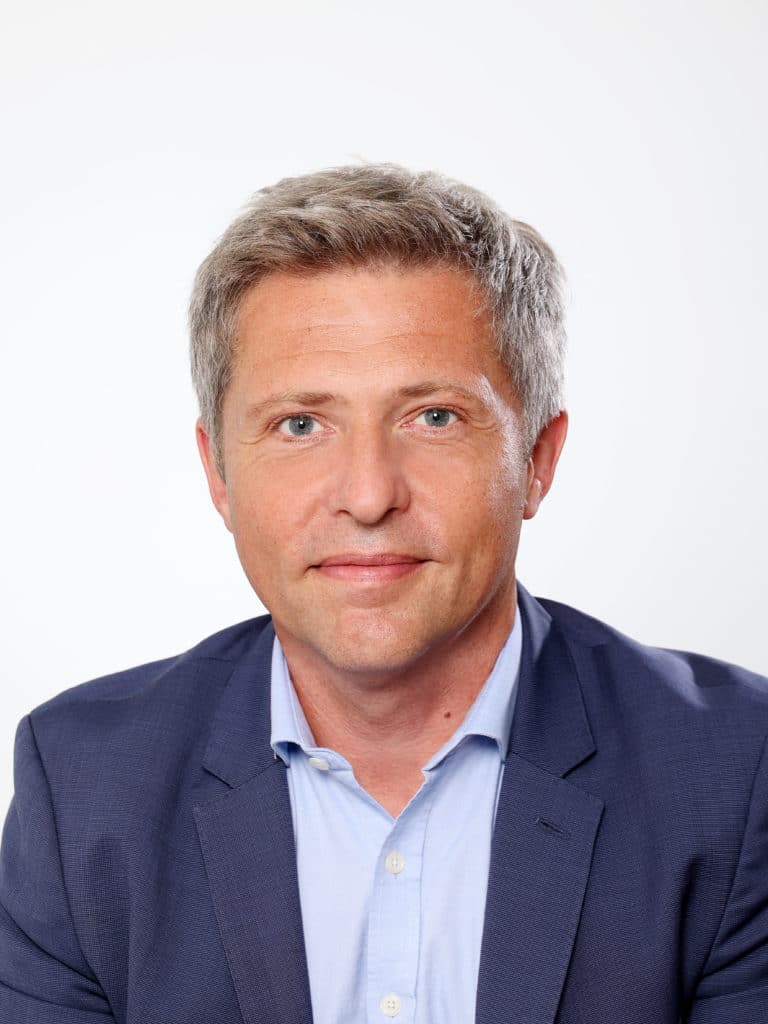Le Président de France Villes et territoires Durables, Patrice Vergriete, Maire et Président de la Communauté Urbain de Dunkerque, a conduit le vendredi 24 mars une visite de terrain à “la Maillerie”, quartier de réhabilitation résidentiel emblématique, confié à Bouygues Bâtiment Nord-Est et mis en œuvre par Linkcity et Nhood.
Lors de cette visite, une dizaine de membres issus de nos 4 collèges, ont pu découvrir les coulisses de ce quartier pensé comme un lieu de vie, d’innovation et d’expérimentation en faveur de la biodiversité et de la mobilité douce.
Implantée sur l’ancien site logistique “3 suisses” (fleurons de l’industrie textile nordiste) “la Maillerie” est un projet d’aménagement innovant. A travers la diversité de fonctions et la mixité de ses espaces, ce projet vise à réactiver cette ancienne friche industrielle en donnant de la valeur urbaine.

Déconstruction “intelligente” et économie circulaire
Une démarche de déconstruction “intelligente” a été mise en place pour la construction de la Maillerie afin de limiter et valoriser autant que possible les déchets de démolition : identification des équipements et matériaux, déconstruction sélective, création de partenariats pour la valorisation ou réemploi des équipements et matériaux, conservation d’un bâtiment transformé en parking … Un processus innovant de recyclage des bétons a aussi été déployé sur le site par Neo-Eco Recycling, société d’éco-conception en partenariat avec l’Ecole des Mines de Douai.
“Une nouvelle manière d’habiter”
Ce quartier de 10 hectares a été pensé pour répondre aux usages et besoins des futurs résidents. “Nous avons 3 grandes ambitions qui sont le socle du projet : la biodiversité et la nature, le lien social et la question de mobilité. Pour faire cela, on a mis en place une gouvernance différente, basée sur 3 thématiques : une maison de projet multi-usages, la création d’événements éphémères et un travail de co-construction avec les riverains et les associations” a souligné Lionel Amann, directeur de projets urbains chez Linkcity.
Le quartier s’engage vers une labellisation BiodiverCity®, un label qui récompense les projets immobiliers conçus dans le respect de la faune et la flore. La Maillerie accueille ainsi des potagers urbains, de la végétation comestible (arbres et arbustes fruitiers, légumes et plantes aromatiques) et une micro-ferme.
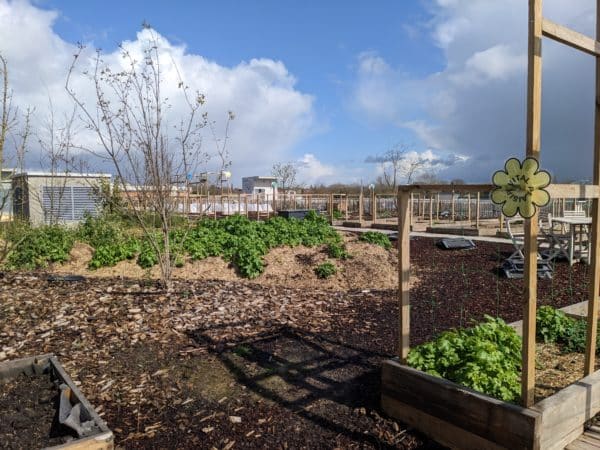
30% des logements sont des logements sociaux. Le quartier comprend une résidence pour étudiants, une résidence pour séniors, des logements locatifs libres, des logements en accession libre, des logements en Leasehold ou « propriété pour la vie » développés avec La Française REIM (société de gestion de SCPI) des logements « prêts à finir ». Il comprend également des bureaux, des commerces (restaurants, une halle gourmande/marché couvert, un espace évènementiel et un “popup” store), une conciergerie de quartier proposant un panel de services, une maison médicale, un hôtel et une école.
L’ambition de ce quartier est d’apporter des réponses aux enjeux économiques, sociétaux et environnementaux d’aujourd’hui à travers l’innovation des nouveaux modes d’interactions entre ses habitants et les acteurs locaux.
Un lieu de lien social
Afin de favoriser les rencontres et les échanges entre les habitants, des espaces physiques et numériques ont été développés : une maison du projet pour accueillir des événements éphémères, des zones piétonnes, des pistes cyclables, des garages à vélos et cantonnement des véhicules individuels pour favoriser la mobilité douce.
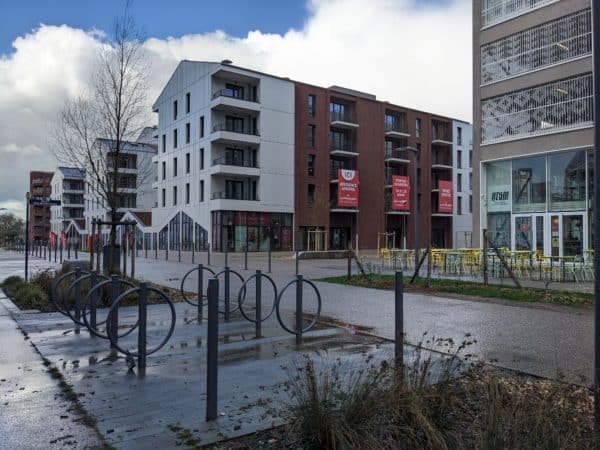

Repérer, capitaliser et essaimer des démonstrateurs sobres, résilients, inclusifs et créatifs (selon les 4 piliers du Manifeste des villes et territoires durables) est au cœur des missions de France Villes et territoires Durables. Nous proposons à nos adhérents des actions opérationnelles, pour inspirer et accompagner les démarches vers des trajectoires plus durables et résilientes.

